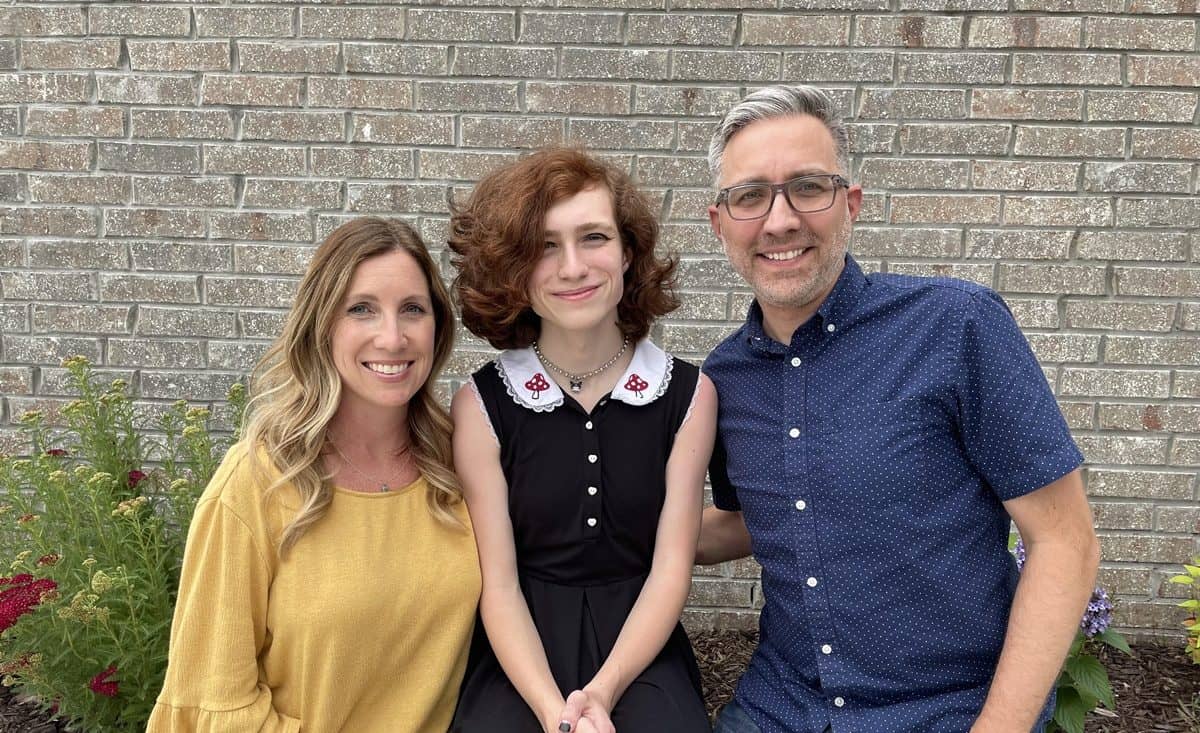
The American Civil Liberties Union followed through on its promise to file a legal challenge to Arkansas' newly signed law that prohibits gender-affirming healthcare for trans youth on Tuesday.
The ACLU filed suit in federal court against Arkansas Attorney General Leslie Rutledge and the entire state medical board, including Arkansas State Medical Board executive director Amy E. Embry, on behalf of four trans youth and their families and two doctors. The lawsuit challenges that the trans-exclusionary bill, HB 1570, violates the U.S. Constitution's 14th Amendment.
“[HB 1570] violates the Equal Protection Clause of the Fourteenth Amendment because it discriminates on the basis of sex and transgender status by prohibiting certain medical treatments only for transgender patients and only when the care is ‘related to gender transition,'” the ACLU said in its complaint. “This discrimination cannot be justified under heightened scrutiny or any level of equal protection scrutiny.”
The bill, which is scheduled to go into effect as state law on July 28, prevents medical professionals providing and referring gender-affirming healthcare treatments, including hormone replacement therapy (HRT), puberty blockers and gender-confirming surgeries, to trans minors in the state. It also allows private health insurance companies to exclude gender-affirming care for trans individuals of any age from from coverage plans and outlaws the use of state funds and health insurance for similar care for trans minors.
…the thought of losing it all is terrifying to me. I cannot go back to the version of life when I did not have this care,”
Parker Saxton, 16, ACLU Statement
The plaintiff families filed suit for various reasons relating to how HB 1570 will impact the development of their trans children should it be enforced. Parker Saxton, 16, and Sabrina Jennen, 15, fear the positive impact of gender-affirming care on their mental health could be undone if that care is blocked as the bill aims to do. “I know firsthand that gender-affirming care is life-saving care. I can't imagine going back,” said Jennen. “I finally have access to the medical care that I need and beginning to feel less depressed and fearful and the thought of losing it all is terrifying to me. I cannot go back to the version of life when I did not have this care,” said Saxton.
Trans young people should not have to fight so hard to live.
Chase Strangio, ACLU deputy director
Amanda Dennis, mother of 9-year-old Brooke Dennis, said her daughter knew who she was at 2-years-old but struggled when she felt pressured to “pretend she is a boy” at school. “It was painful to watch our child in distress. Last year, when she told us she is a girl and would like to be called ‘Brooke' and referred to using she and her pronouns, we supported her immediately and the cloud of sadness lifted and her smile came back.” said Dennis.
Dennis and her husband, Shayne, may leave the state if the law takes effect. “We have told all of our children that we will always protect them, but this law stands in the way of our child getting the medical care she will desperately need,” she said.
“This is who I am, and it's frustrating to know that a place I've lived all my life is treating me like they don't want me here,” said plaintiff Dylan Brandt, 15. “Having access to care means I'm able to be myself, and be healthier and more confident — physically and mentally. The thought of having that wrenched away and going back to how I was before is devastating.”
Drs. Michelle Hutchison and Kathryn Stambough are also counted among the plaintiffs. Both oppose HB 1570's restrictions on a scientific and medicinal basis, a position they share with the majority of major medical organizations.
HB 1570 represents the most pervasive erosion of trans individuals' access to healthcare to pass amid the sweeping amount of anti-trans legislation introduced in more than 30 state legislatures this year. Arkansas Gov. Asa Hutchinson vetoed the bill last month, labeling the bill “a vast government overreach” and citing that the bill's provisions “could lead to significant harms from suicide to drug use to isolation” for the state's trans youth community. The Arkansas legislature overrode his veto, effectively making the bill state law.
“This law would be devastating to trans youth and their families, forcing many to uproot their lives and leave the state to access the gender-affirming care they need. Gender-affirming care is life-saving care for our clients, and they're terrified of what will happen if this law is allowed to take effect,” said Holly Dickson, ACLU of Arkansas executive director. “No child should be cut off from the medical care they need or denied their fundamental right to be themselves — but this law would do both.”
“These attacks against trans youth in Arkansas and in states around the country will not go unchallenged — not while they are debated in legislatures, not after they pass, not when they are discussed in public conversation,” said ACLU deputy director for transgender justice Chase Strangio. “Trans young people should not have to fight so hard to live. Even with supportive families, these bills have devastating consequences.”
“Our work will not be done until every law that targets transgender people is struck down as unconstitutional and all transgender people are able to live without fearing discrimination and violence because of who we are. To all the transgender people who are fighting each day, please know that you are not alone and that we will continue to build movements for justice that center your needs, your experiences, and your beauty,” Strangio added.
In a statement to the Associated Press, Rutledge intends to defend the anti-trans law aggressively. “I won't sit idly by while radical groups such as the ACLU use our children as pawns for their own social agenda,” Rutledge said.
Arkansas Previously on Towleroad
Photo: Sabrina Jennen and her parents, Lacey and Aaron Jennen/ACLU



